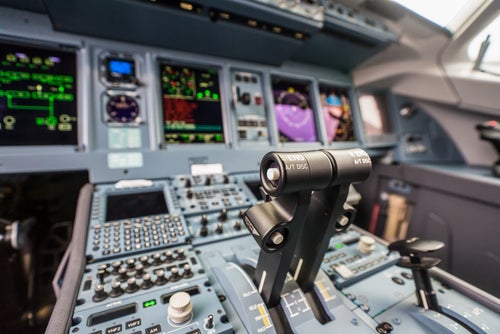
Just like airlines, aircraft lessors can raise funds for aircraft through conventional means (cash, bank loans, capital market debt), as well as having at their disposal asset-backed securities (ABS).
Aircraft ABS are bonds, or notes, sold to investors and listed on the stock exchange.
An A-note is the highest-ranked tranche of an ABS and during bankruptcy, default, or other credit proceedings, this note is senior to other notes, such as B or C-notes.
E-notes are the riskiest notes, but they also offer the highest potential return. Currently, there are around 50 ABS in issue globally, according to Ronan Reilly, managing director of JTC Group, a Jersey-based corporate advice company.
The total ticket sizes for ABS range between $300m to $600m, with each comprising a mix of 15 to 25 aircraft on balance sheets, and deriving income from lease rentals, says Reilly.
And while ABS has enjoyed substantial growth up until recently, the closing of borders and the suspension of travel during the Covid-19 lockdown have threatened airlines with insolvency and put the kibosh on the future growth of ABS for the time being.
How well do you really know your competitors?
Access the most comprehensive Company Profiles on the market, powered by GlobalData. Save hours of research. Gain competitive edge.

Thank you!
Your download email will arrive shortly
Not ready to buy yet? Download a free sample
We are confident about the unique quality of our Company Profiles. However, we want you to make the most beneficial decision for your business, so we offer a free sample that you can download by submitting the below form
By GlobalDataMeanwhile, an expected rise in non-payments and rising demand in lease deferral requests have prompted rating agencies to put ABS debt on negative watch.
In March, Fitch Ratings placed 35 outstanding tranches of Aviation ABS (aircraft and engine) notes on ‘rating watch negative’ and moved a further 51 classes of notes to negative from stable.
It said these actions included 27 aircraft and four engine ABS transactions valued at $13.8bn in notes issued by 13 lessor ABS platforms.
Fitch Ratings said that its action was: “driven principally by the massive negative impact of the coronavirus pandemic, specifically the ongoing declining credit quality of over 200 airline lessees backing the 31 securitised pools.”
Clearly, as the pandemic takes its toll airlines are going bust. At least 23 airlines globally have either declared bankruptcy or gone into administration since Covid-19 was declared a pandemic; these include major players such as Flybe and Virgin Australia.
Other carriers, either with deep pockets, well-funded parent companies or who benefit from state sponsorship may survive the downturn after a period of lease deferrals.
While some airlines may not be able to count on cash reserves or state aid from their respective governments – but whose business case is strong – these players may survive Covid-19 by leasing their entire fleet.
In a recent article, Alex O’Brien, a finance graduate with an interest in aviation, argues that despite the effects of Covid-19 on the sector, recent developments in ABS transactions suggest some lessors may be helping investors find opportunities to realise value.
He says that an historic bias for younger aircraft in the ABS market has made aviation securitisation a risky proposition because, in a downturn, all things being equal, younger aircraft values have much further to fall than older aircraft.
This situation is exacerbated during a period of low global oil prices. Now is not the time to be reaping energy savings from young fleet equipped with the latest in fuel-efficient technology.
That is not to say older aircraft ABS are risk free, on the contrary, but in the current market, there’s an argument to be made for finding value in mid- to end-of-life aircraft ABS when risk appetites return to the sector, but only for those who ‘know the asset’, or as they say in aviation ‘understand the metal’.







